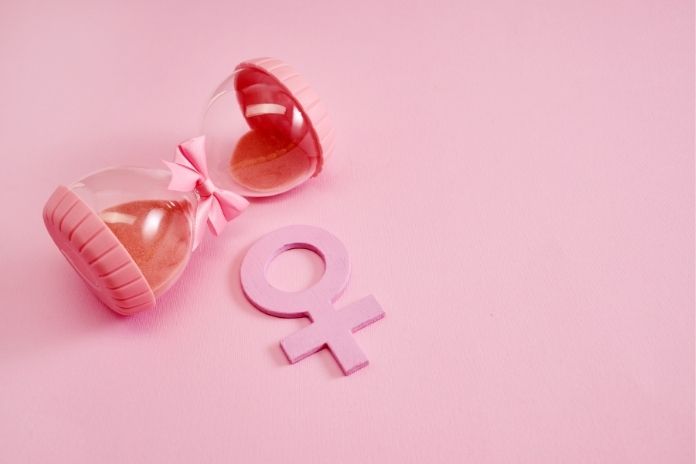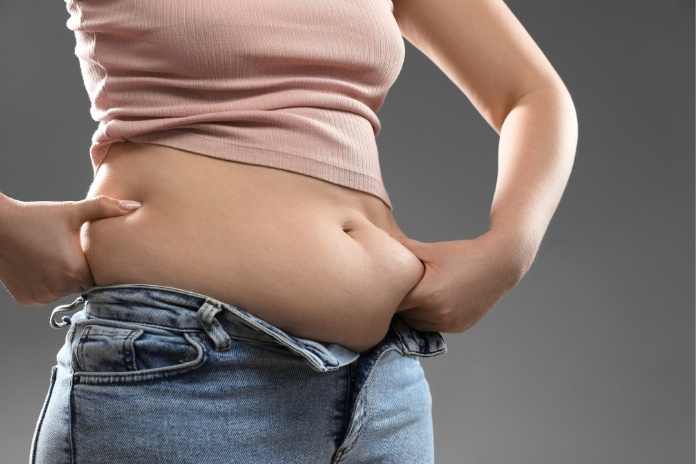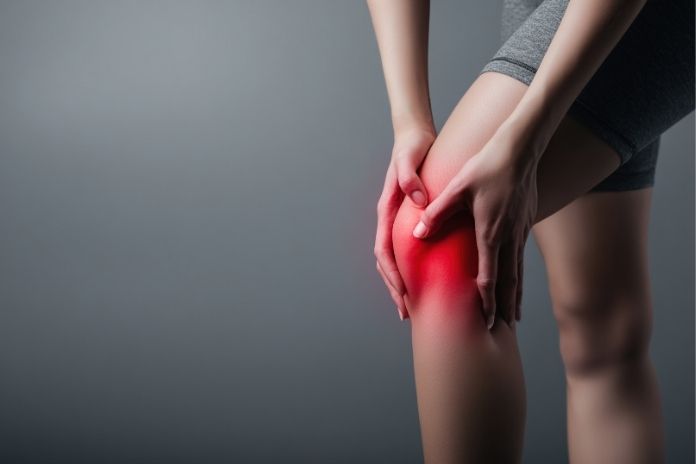You’ve seen many fitness enthusiasts sipping black coffee right before a workout, almost like it’s part of their warm-up. It’s a familiar scene at gyms and running trails: a quick coffee before the exercise begins. For many, it’s an integral part of their fitness regimen.
But it’s not just about shaking off the morning fog. That caffeine kick is believed to do more than just wake you up. A sip of black coffee is said to jumpstart your metabolism, increase focus, and promote endurance.
Black coffee before a workout is often said to burn more fat and improve performance. But does your morning cup truly help burn fat more efficiently? Let’s break down the science behind the claims.
Read More: 8 Best Low-Caffeine Pre-Workout Supplements
Caffeine: Metabolic Health in Every Sip
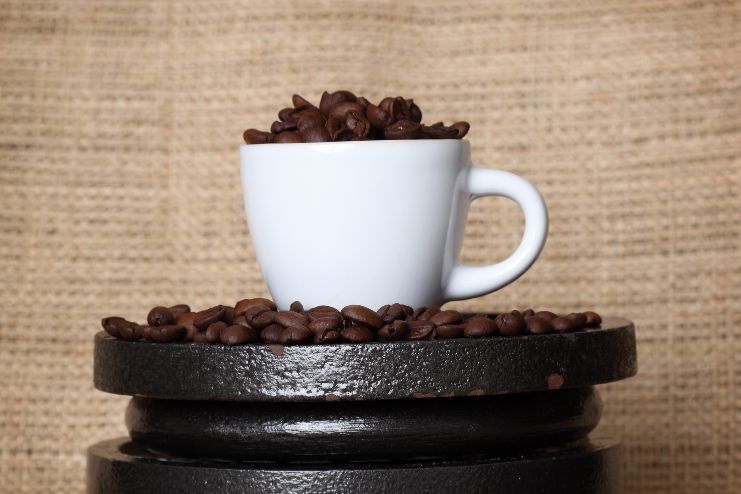
At the heart of black coffee lies caffeine, a natural stimulant that activates the central nervous system. Once ingested, caffeine blocks adenosine (a sleep-inducing neurotransmitter), leading to heightened alertness, increased energy levels, and improved physical readiness.
But caffeine does more than just keep you awake — it also:
- Increases thermogenesis by producing heat in the body and boosts calorie burn.
- Mobilizes fatty acids from fat stores, enhancing efficient use of energy.
- Increases epinephrine (adrenaline), which helps in fat breakdown and performance readiness.
These processes have prompted scientists to study caffeine more closely. Various studies are conducted to determine if black coffee helps before a workout.
Read More: The Coffee Loophole Diet: Can You Lose Weight Without Giving Up Your Favorite Brew
The Science: Does Coffee Burn Fat?
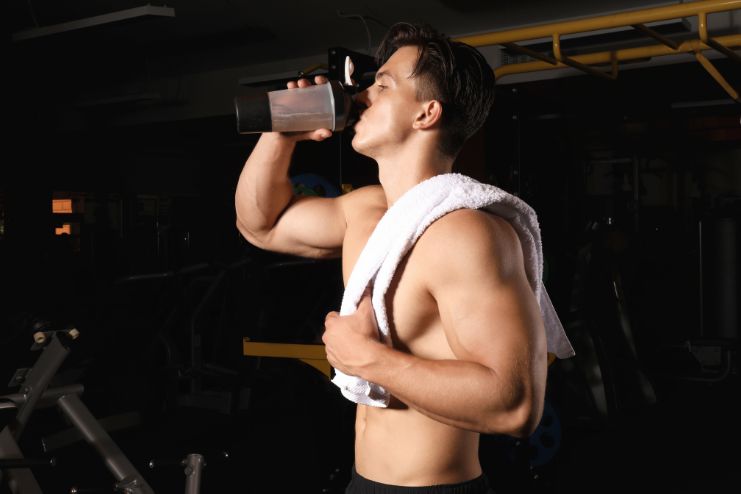
Let’s explore the current research on coffee’s role in fat burning, especially when consumed before physical activity.
Short-Term Metabolic Boost
Studies indicate that caffeine raises metabolic rate on a short-term basis. A study in the American Journal of Clinical Nutrition found that caffeine boosts energy expenditure by 3–11%, depending on factors such as age, weight, and caffeine sensitivity.
Another article in Men’s Health advises that caffeine boosts fat oxidation—burning fat for energy, particularly when taken before moderate-intensity cardio.
Caffeine Tolerance is Real

According to NDTV Health, people who regularly drink coffee build a tolerance to caffeine, making it less effective in the long run. This reduces its fat-burning effect. That’s why it’s important to cycle caffeine (periodically reducing or stopping caffeine intake to reset the body’s sensitivity).
One of the most cited studies on this topic comes from the University of Granada (2021). Researchers found that consuming 3 mg of caffeine per kilogram of body weight about 30 minutes before aerobic exercise significantly increased fat oxidation. This is especially true when workouts take place in the afternoon.
The timing matters, and caffeine promotes fat burning under the right conditions. Let’s understand the right timings and dosage to maximize the effects of having black coffee.
Read More: RYZE Mushroom Coffee: Is It Worth the Hype? Pros, Cons, and Varieties
Optimal Timing and Dosage for Pre-Workout Coffee
Getting the benefits of coffee and exercise performance isn’t just about drinking it—when and how much also matter.
Timing
Caffeine tends to peak in the blood 45 minutes after ingestion. For most individuals, the optimal time to consume black coffee is 30 to 60 minutes before exercise to achieve maximum energy and fat burn.
Dosage
- The optimal pre-workout dose of caffeine is 3–6 mg/kg body weight, according to sports nutrition recommendations. This corresponds to roughly:
- 200 mg for a 70 kg person (1–2 cups of strong coffee).
- 300–400 mg for individuals with greater caffeine tolerance or body weight.
While caffeine suits most people, personal sensitivity varies. Caffeine hits everyone differently. If you’re new to it or sensitive, start low (around 100 mg) to gauge how your body reacts. Overdoing it can backfire, leading to jitteriness or digestive discomfort.
Including black coffee in a pre-workout regimen can be a great option. Check out a few of our top favorite coffee picks:
1. Black Silk Dark Roast Coffee, 72 Keurig K-Cup Pods
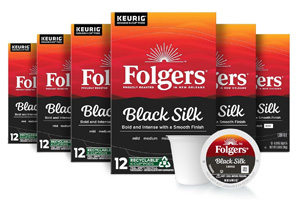
2. K-Cup Coffee Pods, Dark Roast Coffee

3. G7 Instant Coffee — 100% Soluble Coffee — Pure Black — Strong and Bold

Potential Benefits of Black Coffee Beyond Fat Burning
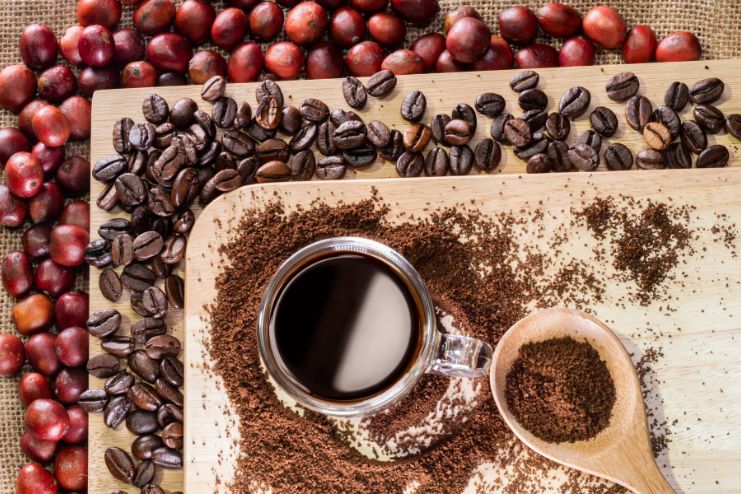
While black coffee is primarily popular for its fat-burning potential, it also offers other benefits.
Improved Physiological Performance
According to a study, caffeine promotes endurance, boosts power output, and slows down fatigue. This makes black coffee a perfect choice before cardio exercise, HIIT sessions, and even strength training.
Cognitive and Mental Boost
Caffeine improves concentration and enhances mood. Once you sip black coffee, it is easier to push through a grueling session of exercise.
Risks and Considerations: Know Before You Sip

Black coffee is low-calorie and effective, but not risk-free.
Side Effects of Pre-Workout Coffee
Certain common side effects of consuming black coffee are:
- Jitters or Restlessness: Caffeine stimulates the central nervous system. Higher doses can lead to symptoms such as nervousness, shakiness, or restlessness. This is particularly true for people who are sensitive to it or consume it on an empty stomach.
- Increased Heart Rate or Palpitations: Caffeine can increase your heart rate temporarily and can induce palpitations in some people. These are generally dose-related and can depend on individual tolerance or existing conditions.
- An Upset Stomach: Coffee is acidic and stimulates gastric acid production. This irritates the stomach lining, resulting in acid reflux, heartburn, or overall digestive discomfort, especially when taken on an empty stomach.
- Insomnia: Caffeine is a blocker of adenosine, a sleep-promoting Due to its 5–6 hour half-life, caffeine taken even in the afternoon can disrupt sleep onset and quality.
Caffeine Sensitivity
Not everyone responds to caffeine in the same manner. Some individuals can enjoy a strong cup of black coffee and be just fine, but others may have anxiety, jitteriness, or a rapid heart rate from as little as one cup. This is because individual differences in the metabolism of caffeine depend on genetics, health status, and even certain medications.
You must ascertain your sensitivity to caffeine and adjust consumption accordingly. It is best to consult a healthcare practitioner when in doubt.
Hydration Concerns
Caffeine is a mild diuretic that promotes urine production. Although moderate coffee consumption doesn’t typically cause dehydration in regular users, it’s still wise to remain aware of your overall fluid levels. It’s crucial to remain mindful of your hydration, especially during exercise. Balance your pre-workout coffee with sufficient water to remain hydrated.
Read More: RYZE Mushroom Coffee: Is It Worth the Hype? Pros, Cons, and Varieties
Practical Tips for Incorporating Black Coffee into Your Workout Routine

If you want to incorporate black coffee before a workout into your routine, here’s how to do it successfully:
Begin Small and Monitor Results: Start with 100–200 mg of caffeine (about 1 cup of black coffee). Pay attention to how you feel during your workout, and make adjustments as needed.
Steer Clear of Additives: Avoid sugar, syrups, and creamers. They contribute extra calories and can lead to an energy crash. Plain black coffee is more effective for burning calories.
Test Your Timing: Experiment with consuming coffee 30–60 minutes before your workout. You can try morning versus afternoon sessions to compare fat-burning and energy levels.
Cycle Your Caffeine: To prevent building a tolerance, take a caffeine break every few weeks or alternate with other natural pre-workout supplements such as green tea extract or beetroot juice.
Read More: Why Does Coffee Make You Poop? 8 Possible Reasons
Final Word: Is Black Coffee Before a Workout Worth It?

Yes—but with context.
Black coffee consumed before exercise can temporarily enhance metabolism, elevate fat burning during exercise, and improve performance. However, its long-term effect on fat loss is limited unless combined with consistent training, smart nutrition, and healthy habits.
If you’re sensitive to caffeine, it might not be the best choice for you. For most, a timely cup of black coffee can be an effective, natural, and affordable performance boost, while also encouraging the body to access fat stores for energy.
As always, pay attention to your body, make adjustments thoughtfully, and keep the larger picture of health in mind, not just one habit.
References
- https://pmc.ncbi.nlm.nih.gov/articles/PMC6467726/
- https://www.menshealth.com/uk/nutrition/a35946392/coffee-fat-burn-metabolism/
- https://www.ndtv.com/health/can-coffee-add-more-years-to-your-life-7223070
- https://www.sciencedaily.com/releases/2021/03/210322175042.htm?utm_source
- https://www.ncbi.nlm.nih.gov/books/NBK202225/
- https://pmc.ncbi.nlm.nih.gov/articles/PMC4462044/
- https://pmc.ncbi.nlm.nih.gov/articles/PMC8778943/
- https://pmc.ncbi.nlm.nih.gov/articles/PMC7777221/
- https://pmc.ncbi.nlm.nih.gov/articles/PMC11648991/
- https://www.sleepfoundation.org/nutrition/caffeine-and-sleep
In this Article







